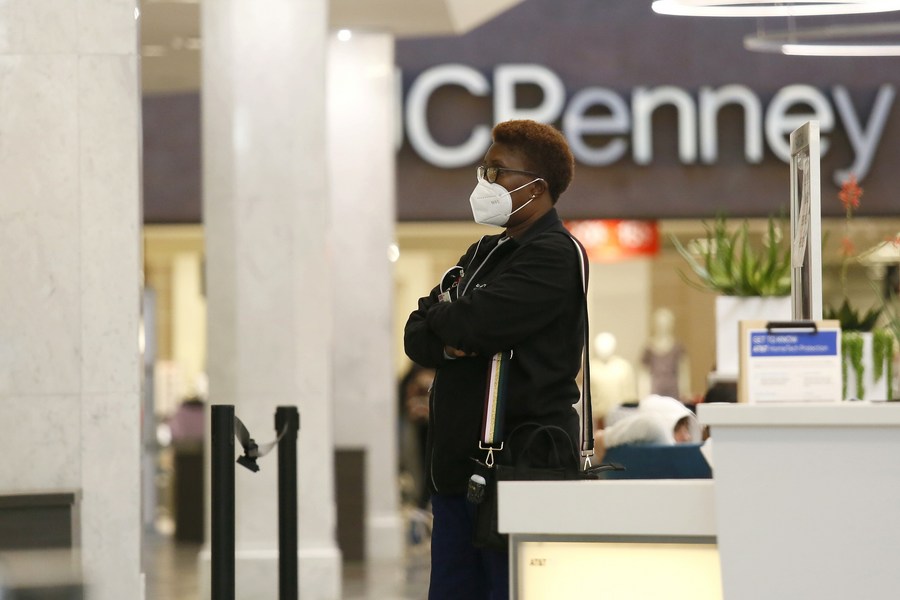
A woman wearing a face mask waits in line outside a store in a shopping center in New Orleans, Louisiana, the United States, Jan. 11, 2022.
This evidence implies that policies seeking to achieve racial health equity cannot succeed if they only target economic markers of disadvantage.
NEW YORK -- The wealthiest women and their infants are more likely to have better childbirth outcomes than those who are not, "unless they're Black," said an article published by The Hill on Wednesday, citing a recent study from the U.S. National Bureau of Economic Research.
The analysis covered nearly 2 million childbirths in California, the most populous state of the United States, over a nine-year timeframe, and found that Black infant mortality at the top income bracket is nearly 23 percent higher than that of white infants at the bottom bracket.
"It also found the maternal mortality rate for Black mothers at top income levels is similar to that of white mothers at the lowest," said the article.
"This evidence," the study's authors noted, "implies that policies seeking to achieve racial health equity cannot succeed if they only target economic markers of disadvantage."
The study raises even larger concerns: Black families that can afford healthcare are experiencing higher rates of maternal mortality, the article said.
Experts cite the effects of systemic racism regardless of economic status. "Black women encounter 'untoward experiences' and face bias by medical professionals, conscious or unconscious," it added.












